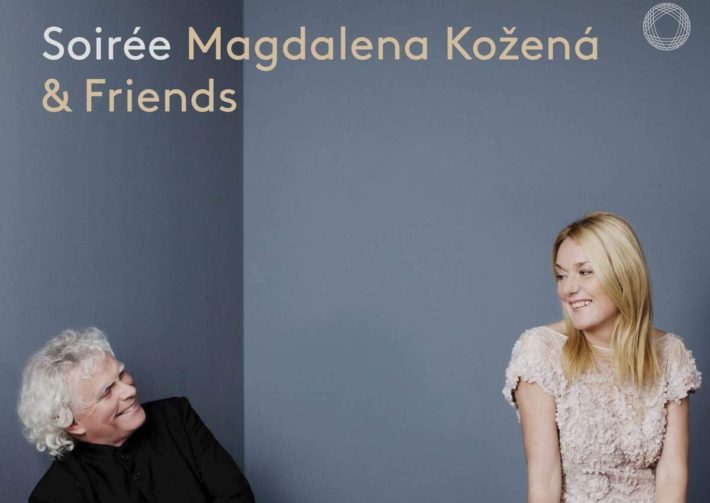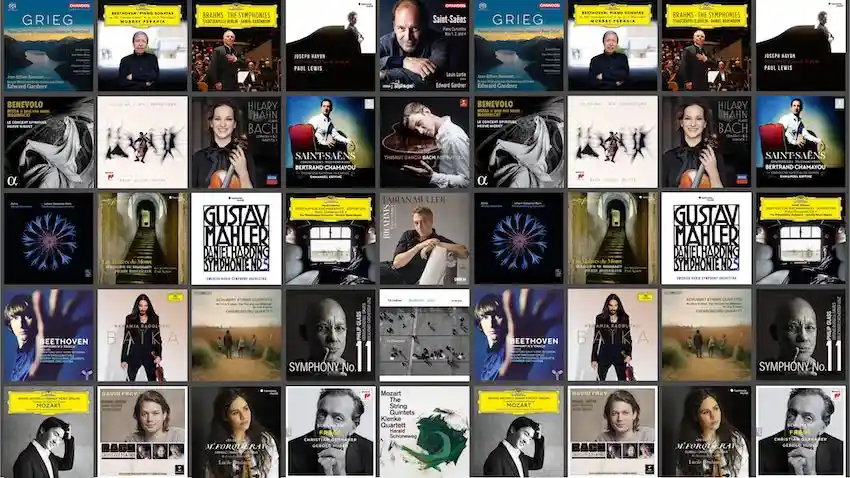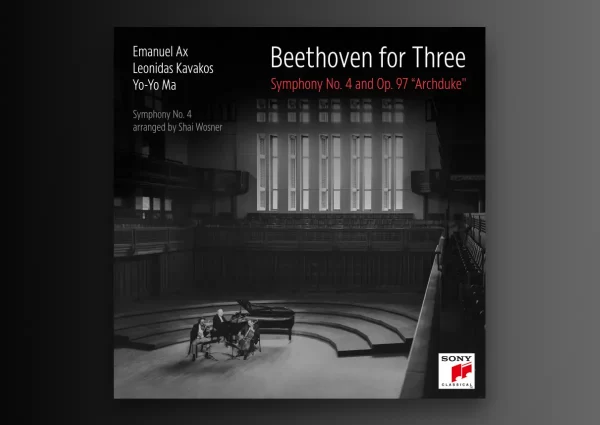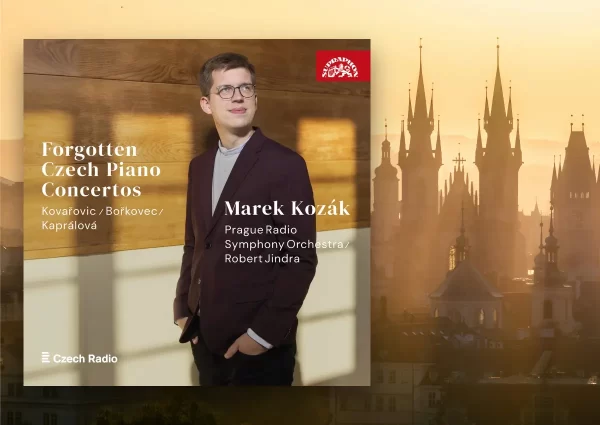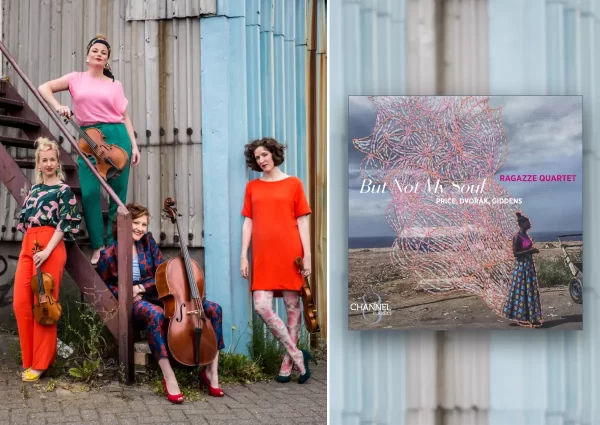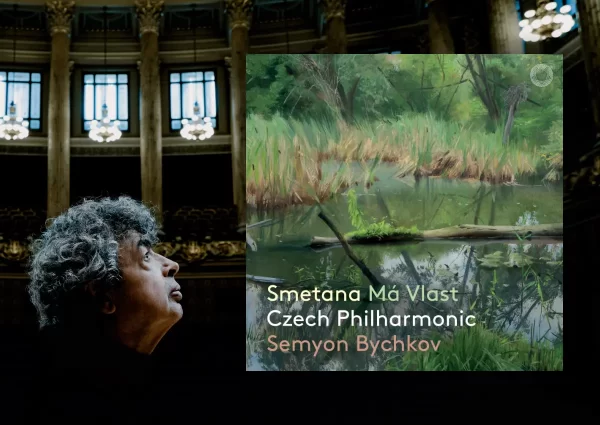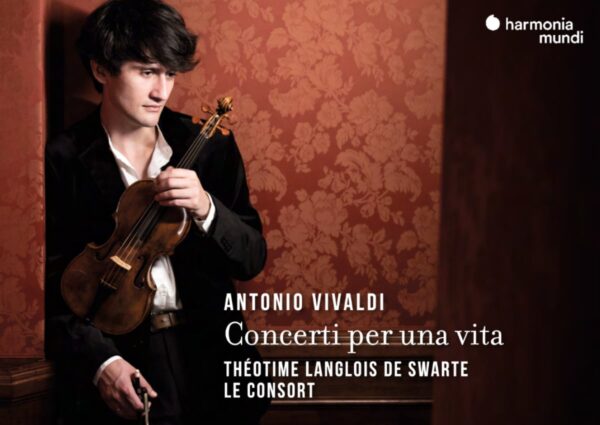The liner notes of this release begin with a note by Kožená in which she describes the “relaxed atmosphere of family music [that] was permanently present during these concerts and recording sessions”. That atmosphere is certainly palpable and is part of what makes these performances so special.
The recording makes the most of Kožená’s many strengths, chief among them her distinctively meaningful singing, which so often convinces the listener that there is no better way to interpret the music. Throughout her career, she has explored an exceptionally large repertoire, and this recording is no exception, with lesser-known music by Chausson, Stravinsky and Janáček performed along with better-known works by Brahms and Dvořák. The small ensemble of musicians, including husband Simon Rattle’s as a pianist, prove to be exceptionally suited to enhance and support Kožená’s interpretations.
The program begins with Chausson’s stunning “Chanson perpétuelle,” accompanied by a string quartet and piano. The accompaniment offers continuously shifting hues of color that communicate the intensely emotional poem by Charles Cros, in which a narrator grieves the abandonment of a lover, the pain so overwhelming that nature itself joins in expressing anguish. The performers are alive to every mood change and make the strongest possible case for this neglected work – how can such stunning music be so little recorded?
Get periodic updates about new classical music albums reviews, news and guides.
We respect your privacy.
Seven songs by Dvořák follow, affectingly arranged for flute, clarinet, string quartet and piano by Duncan Ward. The orchestration opens a wider emotional palette which the performers explore with complete success. Four of the songs are from Dvorak’s Gypsy Songs, and Ward’s new orchestration’s highlights the gypsy-like melodic contours and rhythms. Kožená is always a natural communicator, but never more so than when singing in her native tongue. Using varying vocal color and interpretive nuance, she fully depicts the emotional journey of each song.
Brahms’ Two Songs (Op. 91, tracks 9-10) include a solo viola, here beautifully played by Yulia Deyneka. Kožená once again fully captures Brahms’ autumnal, gentle resignation. In the first song, Brahms’ love of metrical ambiguity is impressively realized by Rattle, Deyneka and Kožená, while the second song, (“Sacred Lullaby”) is tenderly rendered, its ebb and flow conveyed with absolute naturalness.
Romantic Spell
The spell of romantic quietude is gently set aside with three little-known settings of Shakespeare by Stravinsky (tracks 11-13). These are some of Stravinsky’s first efforts using a serialist (twelve-tone) compositional style, and on first hearing their detached, objective style might seem out of place. But with continued listening, Stravinsky’ carefully constructed music reveals a delicate and touching beauty. This is thought-provoking music in which repeated listening rewards the listener with a deepening appreciation of Stravinsky’s art.
The next two sets, Ravel’s “Chansons madécasses” and Brahm’s “Ophelia-Lieder” (arranged for String Quartet), reveal different sides of each composer. Ravel’s writing is almost expressionistic in its intensity (just listen to the second song, “Aoua”, 15), while Brahms’ songs (17-21), most of which last less than a minute, offer concentrated emotional power. Both sets receive poignant advocacy from these performers.
The program closes with a witty and sardonic performance of Janáček’s “Nursery Rhymes,” the clarinet by turns heckling, virtuosic, charming and playful. Sir Simon proves to be as attentive an accompanist at the piano as he is conducting an orchestra, and there is a particularly wonderful moment in “Children, hear my sermon” (25), where the instrumentalists suddenly become a back-up choir to Kožená. A communal sense of playfulness and joy are readily apparent throughout the performances. As an encore, Kožená sings a ravishing performance of Strauss’ “Morgen,” written as a gift for his wife on their wedding day. Rattle’s presence at the piano certainly adds an extra level of affection to the performance.
The program has been carefully organized to ensure the listener experiences a variety of emotions and musical styles, in performances of immense sensitivity and accomplishment. Pentatone production values and recorded sound are, as expected from this source, exemplary, and James Parsons’ liner notes are a model of their kind. We must hope that these friends will gather together again to offer us more of their exceptional music-making.

“Soirée” – Songs By Dvořák, Janáček, Brahms, Ravel, Stravinsky, Chausson and Strauss
Magdalena Kožená – Mezzo-Soprano
Wolfram Brandl – Violin
Rahel Rilling – Violin
Yulia Deyneka – Viola
David Adorjan – Cello
Andrew Marriner – Clarinet
Kaspar Zehnder – Flute
Sir Simon Rattle, Piano
Pentatone, CD PTC 518667
Related Review:
Follow Us and Comment:
Get our periodic classical music newsletter with our recent reviews, news and beginners guides.
We respect your privacy.

